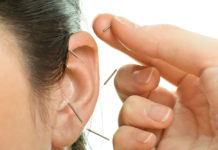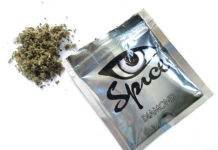Answering the Four Most Common Questions About NyQuil
NyQuil is a popular over-the-counter medication that treats the symptoms of the flu, the common cold, and other illnesses and allergies that involve coughing. Adults and children 12 years old and older can take NyQuil and it can generally be helpful when it comes to alleviating the symptoms of the common cold. Despite its popularity, there are still many things that people don’t actually know about the medication.
To help you out with this, we’ve prepared a quick explainer on NyQuil. Read on to see our answers to a range of common questions regarding its effects, side effects, and efficacy.
What is NyQuil Used For?
To start things off, it’s important to discuss what the purpose of NyQuil actually is. Well, NyQuil is manufactured and sold by Vicks, a well-known American brand that produces over-the-counter medication, whose main purpose is to provide temporary relief from coughing, headaches, study and runny nose, sore throats, and other symptoms that are linked to the flu. Just to be clear, NyQuil does not cure the illness but instead deals with the symptoms associated with them.
What Are the Effects of NyQuil?
To understand the effects of NyQuil, it’s important to take a closer look at its three active ingredients: acetaminophen, dextromethorphan (DXM), and doxylamine.
Basically, acetaminophen reduces the fever and minimizes the pain associated with the flu and colds. It is a pain reliever that is supposed to treat severe pain in conjunction with common opioids. Acetaminophen can treat everything from headaches, body pain, arthritis, sore throat, colds, and fevers. This ingredient is also present in a slew of other over-the-counter medications such as Robitussin, Midol, and Sinutab.
DXM temporarily reduces coughing. It usually acts pretty fast but you shouldn’t expect its effects to last as it does nothing to aid in actual recovery. DXM is an antitussive, which means it decreases the activity in the part of the brain that is responsible for coffee.
Doxylamine is an antihistamine that is geared towards dealing with symptoms of allergies, hay fever, and the common cold. This ingredient works by blocking natural substances such as histamine and acetylcholine. Doxylamine is what’s responsible for reducing allergy symptoms for people with colds.

What Are NyQuil’s Side Effects?
Despite its many uses, it’s also important to note that NyQuil has a slew of different side effects that you should definitely be wary of when taking the medication. Due to the nature of the side effects and their similarities to inebriation, they are usually referred to as a NyQuil Hangover. Here are a few of the most common side effects of the drug:
- Drowsiness
- Dizziness
- Blurred Vision
- Nausea
- Nervousness
- Constipation
- Dry Throat
- Hallucinations
- Shaking
- Irregular Heartbeat
- Seizures
It’s also important that you understand that it’s quite possible to overdose on NyQuil. Symptoms of overdose include loss of consciousness, difficulty breathing, vomiting, dark urine, and severe abdominal pain. If you or someone you know is experiencing these symptoms after ingesting NyQuil then it would be best to call 911 as soon as possible. We cannot emphasize enough how important it is to get help immediately as overdose can prove to be fatal if left unattended.
Lastly, we have to talk about NyQuil and addiction. While using the medicine properly puts you at no risk of getting addicted, misusing the medicine may cause you to develop a dependence on the medication. Remember NyQuil was designed to treat the short-term symptoms of fevers and colds and should definitely not be taken for long stretches of time.
To add to this, you should also refrain from using NyQuil to treat other conditions outside of its original purpose. While it can be tempting to use it as a way to get over insomnia, this will just do more harm than good as its side effects will become more and more prominent the longer you use it for.
How Long Do NyQuil’s Effects Last?
As we’ve already stated, NyQuil is pretty fast-acting. You will feel an immediate effect after you consume the medicine. On average, it takes around 10 minutes for it to fully take effect. You should feel the symptoms of the cold or fever slowly dissipate. Given the nature of this medicine, you may also feel rather drowsy so it’s best to take NyQuil at night as it could end up disrupting your plans if you take it during the daytime.
The drowsiness will last anywhere from 4-6 hours. However, be aware that there are cases where it may last for even longer so be sure to plan around this possibility. You can expect the drowsiness to fully fade away after around 10 hours but this too can vary depending on how your body receives the medication. We recommend refraining from operating any heavy machinery until after you are sure that you no longer feel the effects of NyQuil.
Despite its effects fading away after around 10 hours, do know that the active ingredients of NyQuil may remain in your for up to 3 days after your last dosage of the medicine. For more information on this, here are the half-lives of the ingredients:
- Doxylamine Succinate: The half-life of this ingredient is around 10 hours. This means that it will stay in your body for around 2 and a half days.
- Acetaminophen: The half-life of acetaminophen ranges from 1 to 4 hours. You can expect it to be completely expelled from your body within 16 hours after the last dose of the medicine.
- Dextromethorphan: This substance’s half-life is between 3 to 6 hours. It can linger in your body for up to 33 hours. Interestingly enough, this ingredient is present in all NyQuil products except NyQuil Sinus.
- Phenylephrine: Phenylephrine has a half-life of 2.1 to 3.4 hours. The average adult can eliminate it from their system in around 6 hours but it can linger for up to 18 hours.
There are certain factors that can influence the length of NyQuil’s effects and how long it stays in your body.
- Age: Age plays a pretty significant role in this, as people over the age of 65 tend to be more affected by the effects of the medicine.
-
- Body Mass: Aside from age, a person’s body mass also affects how a person reacts to NyQuil. The higher the percentage of body fat, the longer NyQuil stays in the body.
- Health: A person’s health is also a major factor when it comes to NyQuil’s effects. Everything from hepatic function to the urinary flow rate will affect how long the medicine stays in a person’s body.
Conclusion
We hope this article has shed some light on NyQuil. While it may not seem like it, NyQuil is a fast-acting and long-lasting drug that can really be of help when used properly. However, it can also be easily abused so you’ll want to be wary about how you use it.
Considering how common it is, it’s best to learn as much as you can about it in order to use it safely and effectively. The last thing you want is to accidentally harm yourself due to the mishandling of the medicine.
















